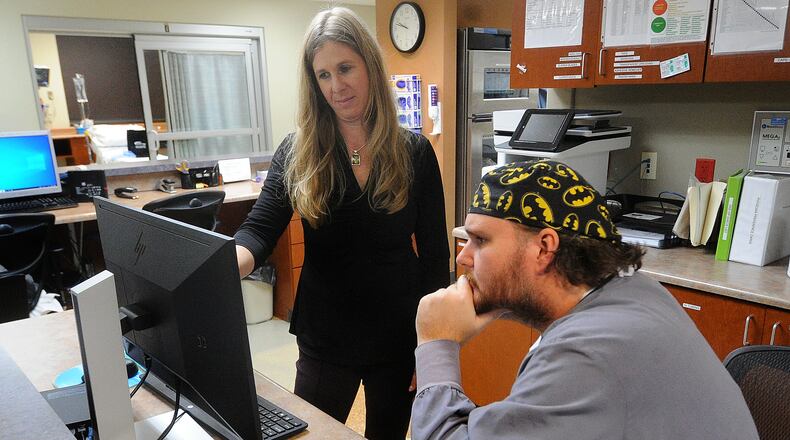Outpatient treatment is also where health care is headed, Carusone said. If the patients are healthy, opting for an elective knee replacement surgery with good support at home, Carusone said home is the best place for them to heal.
“All of our patients go through a screening process ahead of time to ensure patient safety, because that’s our priority, to deem them appropriate to be done in a surgery center and then go home the same day,” Carusone said. On the day of their surgery, they arrive in the morning, surgery takes about an hour, and then the patient goes home about two or three hours afterward.
The Greater Dayton Surgery Center opened in 2006 as a multi-specialty center until 2017 when it became an orthopedic-only center. In 2018, they launched the outpatient program. They have since brought on new robotic technology to assist surgeons in providing greater precision in knee and joint replacements.
“It is there as a tool for guidance,” Carusone said about the robotics, saying it helps the surgeons get down to the correct millimeter during the procedure. With the VELYS robot, Carusone expects they will perform close to 200 procedures this year.
With other joint replacements, this year they expect to quadruple the number of procedures they did five years ago.
“There is a large need, and as the Baby Boomer population is aging that need has just exponentially increased,” Carusone said. In their first year of offering joint replacements, they did approximately 150 procedures. This year, they expect to hit at least 600 joint replacements.
Dr. Ryan Bauman, joint replacement specialist at Orthopaedic Institute of Dayton, is one of the surgeons using robotic-assisted technology in the ambulatory surgery center setting.
“I’ve chosen the VELYS Robotic-Assisted Solution of DePuy Synthes because I want to offer my patients the latest health care technology, which allows for improved precision and accuracy resulting in quicker recovery times and less discomfort for the patient,” Bauman said.
About the Author

